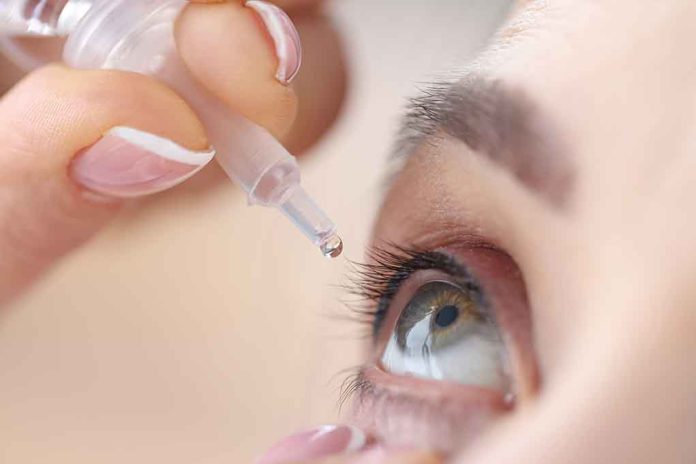
(DailyDig.com) – Three people have died and sixty-eight have been injured after contracting a bacteria strain resistant to antibiotics, which is being investigated by the Centers for Disease Control. Most Pseudomonas aeruginosa patients, they claim, also reported taking eyedrops as tear substitutes or eye medications.
According to samples taken during the months of May 2022 through February 2023, 68 persons were affected throughout 16 states.
Eye discomfort, redness of the eyelids or eyeball, light sensitivity, blurred vision, and secretion from the eye are all common signs of Pseudomonas aeruginosa infection. The infection of the bacteria may propagate to additional areas of the body and even the circulatory system in the worst-case scenario. Infections have claimed the lives of three individuals so far. Four patients have had enucleation (the surgical removal of an eyeball), and about eight people have lost their eyesight.
Antibiotics are often used to treat infections, but the Pseudomonas aeruginosa bacteria are developing resistance to more and more medications. The CDC advises against testing for infections until people exhibit symptoms.
A Centers for Disease Control statement claims that Pseudomonas aeruginosa infections are widespread in healthcare settings. A minimum of 37 cases of the eyedrop-related strain were traced to contact with one of four hospitals. According to a CDC fact sheet, the number of drug-resistant bacterial infections in U.S. hospitals decreased to an estimated 32,600 cases in 2017 from an estimated 46,000 cases in 2012.
There were ten distinct ophthalmic medication brands linked to these incidents. Last month, the Food and Drug Administration cautioned customers to cease using “Artificial Tears Lubricant Eye Drops,” made by Delsam Pharma and EzriCare. On February 2, all EzriCare and Delsam Pharma lots of these artificial tears were recalled by their manufacturer, Global Pharma Healthcare.
The Centers for Disease Control found a Pseudomonas aeruginosa strain matching the one found in opened bottles, and it plans to analyze unopened bottles to determine if contamination happened during production.
Copyright 2023, DailyDig.com













